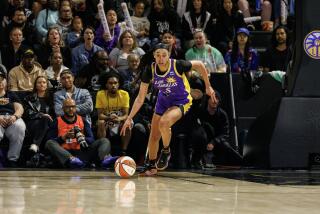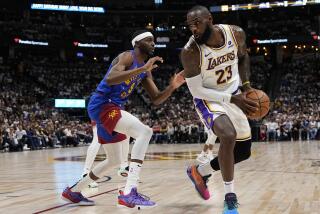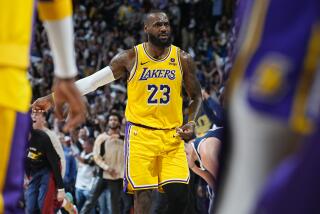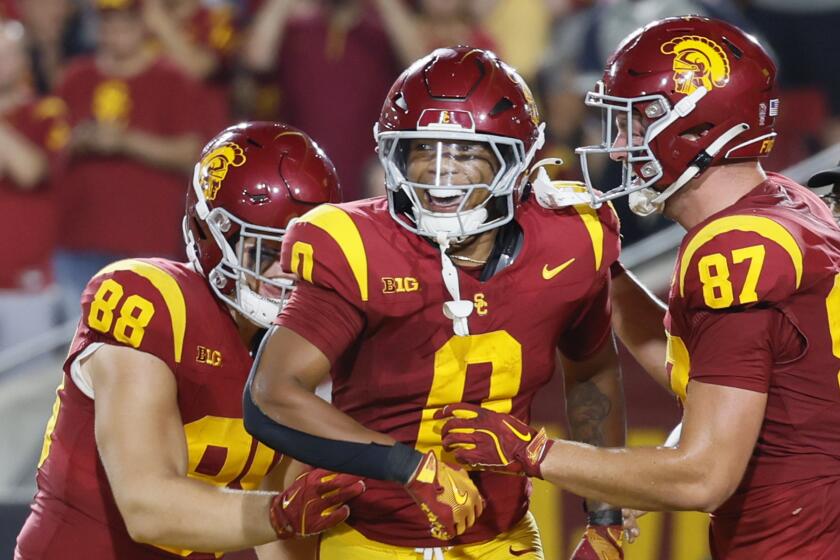NBA labor dispute’s dribble-down effect
Talks broke down again Monday in the labor dispute between the National Basketball Assn. and its players union, prompting the league to cancel the first two weeks of the regular season. It’s hard to get worked up about the economic problems faced by wealthy team owners or the paychecks lost by millionaire players. But it’s easy to get mad at both sides for the squeeze the lockout puts on thousands of workers and small businesses who depend on the teams for their livelihood. Taxpayers helped build many of the NBA’s arenas, beguiled by the promise that the games would bring jobs, tourism and economic activity to their cities. Those cities need that boost now more than ever. This is no time to cancel games.
The owners argue that 22 of the league’s 30 teams are losing money, and that collectively the league came up about $300 million short last year. The teams’ revenues are also wildly unbalanced, with big-city teams such as the Lakers generating much more cash from local television contracts and ticket sales than those in smaller cities. As a result, a handful of wealthy teams can flout the league’s salary cap and pay top salaries to multiple stars, leading to more wins and more revenue.
The divide between big and small markets isn’t the players’ fault. It’s a consequence of the league’s failure to adopt an effective revenue-sharing plan. The owners have been trying to address this, and have reportedly agreed to a more aggressive plan to share the wealth. But they evidently want the players to pay for this plan by agreeing to lower payrolls and a higher “luxury tax” on teams that exceed the salary cap.
If the league is really losing as much money as it says, it can’t solve all of its problems with a better revenue-sharing plan. It will still have to cut expenses, the biggest being player salaries. The players union acknowledges this but disagrees with the owners over how much. In short, it’s a classic labor standoff, the kind that can’t end without compromise.
Considering how well they’re paid, the players can afford to hang tough. No doubt many of the owners can as well; they tend to have successful businesses outside the world of sports. The real victims of the impasse are the restaurants, hotels, concession operators, ushers, vendors and countless other workers, businesses and fans that surround the teams, supporting them and feeding off them symbiotically.
A union official suggested Monday that the owners needed to see that the players were willing to sacrifice games. Maybe they do, but their cities don’t. If the NBA truly “cares,” as the league asserts in its community outreach efforts, the two sides will stay at the bargaining table until they reach a deal.
More to Read
Go beyond the scoreboard
Get the latest on L.A.'s teams in the daily Sports Report newsletter.
You may occasionally receive promotional content from the Los Angeles Times.










